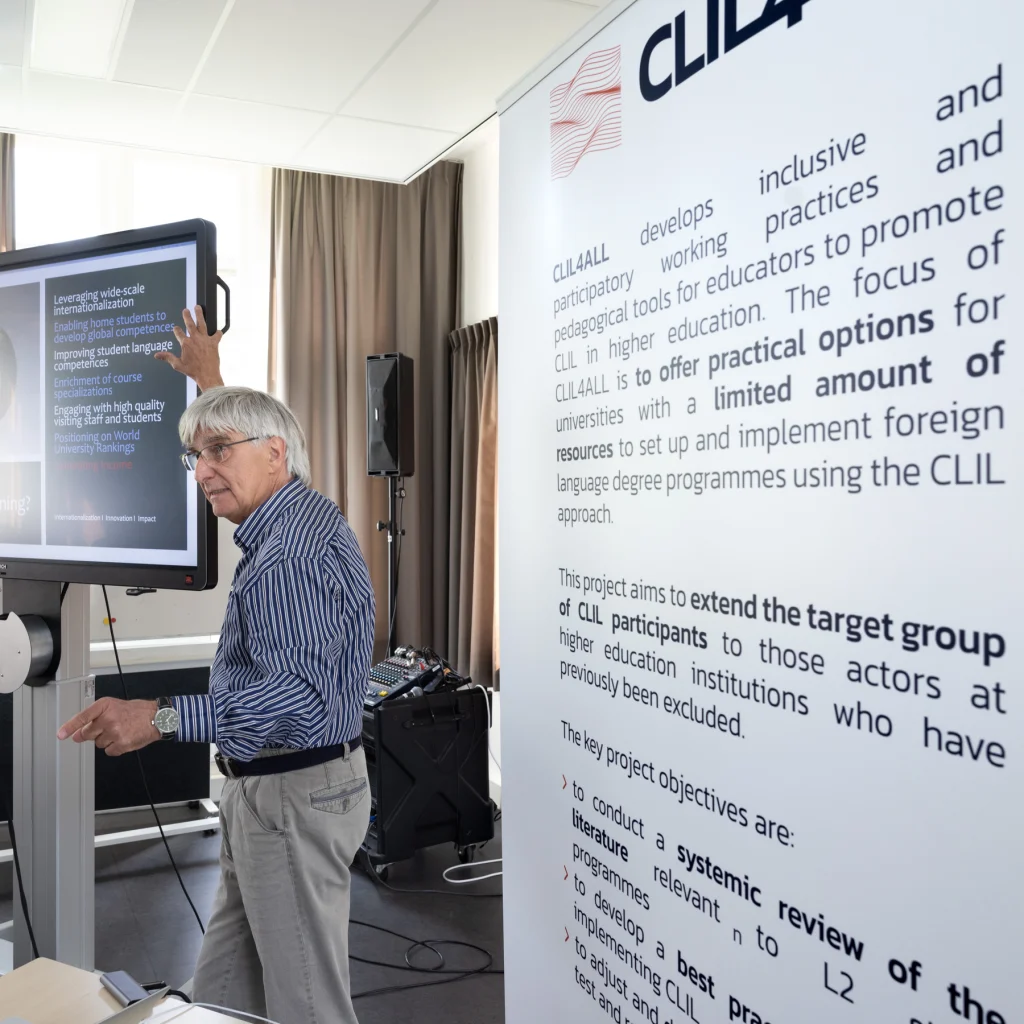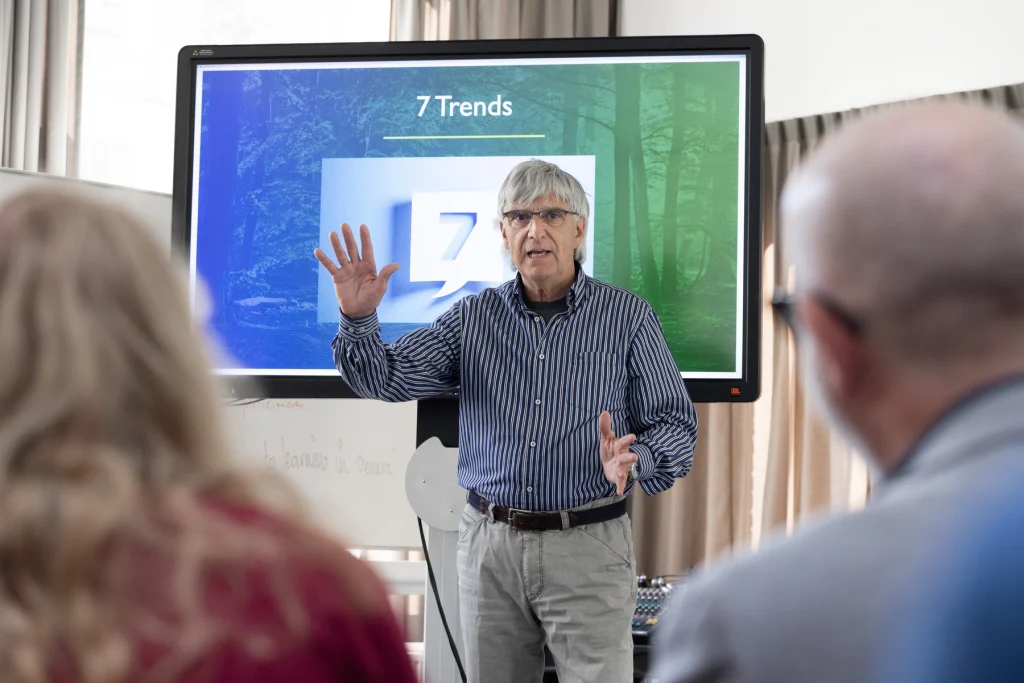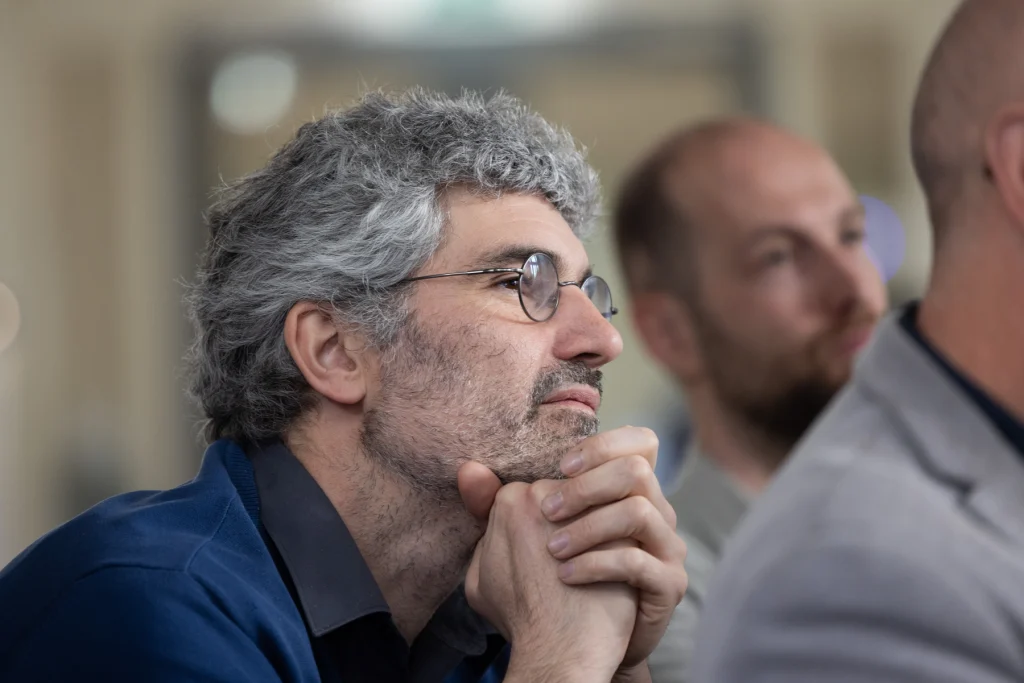
Training Teacher Methodology workshop retrospective
The workshop CLIL Training Teacher Methodology which was held at the HAN campus in Nijmegen in the Netherlands from 24 till 26 April 2023 was the first workshop of the CLIL4ALL Erasmus+ project. We started on Tuesday morning with group work dedicated to establishing our understanding of the concept Content and Language Integrated Learning (CLIL). Different groups were able to come up with many interesting aspects of CLIL and there was a noticeable level of agreement about what the central concept of this project is all about. We were honoured to have David Marsh as key-note speaker who gave an insightful and passionate talk on ‘CLIL in higher education’ which also included some relaxation techniques which the group enthusiastically exercised. David led us through the development of CLIL over past decades of which he was a key figure and identified CLIL as a ‘systemic change agent’ in higher education. The paradigm in education has shifted from yesterday’s sequence of knowledge, skills, and attitudes to today’s one of attitudes, skills, and knowledge.

After lunch on Tuesday Victor Pavón-Vázquez talked about ‘CLIL pedagogy in Higher Education’, focussing on the distinct approaches between CLIL and English as Medium of Instruction (EMI). Some differences lie in highlighting language competence and not the special place of the native-speaker teacher, the value of native languages of all participants and not excluding them in favour of the exclusive use of the target language. Victor offered many practical techniques to activate students to master their discipline language and content.
Javier Ávila neatly continued this theme in his talk entitled ‘A diversity of methods and materials’ and how to apply them in modules. Javier looked into tasks, activities and interaction in the classroom and the shift from factual questions to meta-cognitive questions that encourage students to reason and justify their point of view within class discussions. He also highlighted the importance of Cognitive Discourse Functions and provided the participants with a rubric for materials development.
The last talk on Tuesday was a report on the systematic review that Victor and Javier have been conducting at the university of Cordoba. It was agreed by the participants that the criteria for the second screening would include the key words CLIL and EMI from all disciplines, all European languages, commencing in the year 2000. It would include teachers’ and students’ perceptions as well as the role of policy and institutional decisions.

The Wednesday morning session was led by Antoine Pelicand and Julien Strignano that invited the participants to define the skills that business and technology students need and how that would fit into the CLIL context. The different groups brainstormed a wide range of skill that these students require. The French teams introduced a very interesting mechanical engineering project for creating furniture for outside teaching at their university. This project required the students to analyse specifications and design the product, including assessing the cost of prototypes and conducting market research. This was all done in cooperation with technical companies. This project might serve as a model for the Blended Intensive Programme planned later in this project
In the afternoon Varpumaria Jeskanen, Kirsi-Marija Toivanen and Seppo Nevalainen from Karelia organised groups that focused on different CLIL elements and categories for pilots. This exchange proved to be lively and productive and will form the basis for the third work package Joint Modules.
The workshop in Nijmegen was an extremely well-organised and fruitful experience. All participants were most grateful to Judith Van de Looij and Maartje Gijselhart for their superb management of the event and hospitality. Everyone agreed that a high bar had been set for future events at the partners’ universities.
